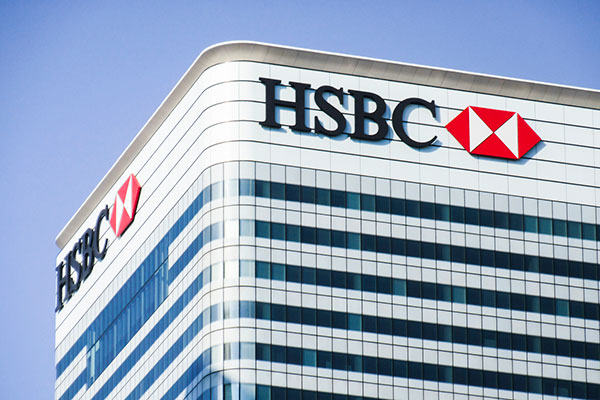HSBC’s share surge could have much further to go
4th January 2023 15:27
by Graeme Evans from interactive investor
Despite racing ahead by 20% since October, one analyst thinks the share price rally isn’t over after China ditched Covid restrictions. Our City writer has the details.

HSBC shares were today backed for a re-rating after China’s rapid exit from zero-Covid restrictions reduced one of the biggest tail risks facing the banking giant.
The stock’s valuation of six times forward earnings is near an all-time low, but Bank of America sees scope for 36% upside after raising its share price target by 10p to 720p.
- Invest with ii: Top UK Shares | Free Regular Investing | Open an investment Account
In today’s note headed Skies Clearing, the bank said Hong Kong’s border reopening, China’s removal of stringent Covid curbs and the refinancing package recently made available to the country’s debt-laden property companies were all positives.
It said: “Recent weeks have seen key tail risks for HSBC Holdings (LSE:HSBA) removed, which we believe sets up the shares for a re-rating from their all-time low multiple.”
HSBC shares closed 2022 at around 517p but have already rallied to 541.3p as the bank joins Prudential (LSE:PRU) and Burberry (LSE:BRBY) among a number of London-listed Asia-focused stocks to benefit from China’s unexpectedly rapid dismantling of Covid restrictions.
While the changes pave the way for a faster-than-expected economic reopening, the simultaneous surge in infections means the recovery path will be bumpy.
- Stockwatch: why 2023 could be the year for this FTSE 100 stock
- This is what the ideal share for 2023 looks like
- Visit our YouTube channel to view our experts’ tips for 2023
UBS Global Wealth Management said today: “Beijing appears to be opting for a “big bang” style exit from zero-Covid - one where the infection peak is passed as soon as possible - versus the staged process we had earlier envisaged.
“Case numbers are likely to stabilise after the Lunar New Year holiday, and we think a recovery in consumption and activity will begin as early as February, picking up pace from the second quarter onward.”
China is the world’s second-largest oil consumer, with UBS expecting two-thirds of oil demand growth will come from emerging Asia markets in 2023.
Asia accounted for around three-fifths of HSBC’s adjusted profit of $17.1 billion (£14.2 billion) in the first nine months of last year, but China’s adherence to strict Covid policies and impact for tourism and supply chains clouded the regional outlook.
Bank of America believes the exit from zero-Covid now reduces the risk of an extended period of low economic growth in China that spills over to HSBC's Asian franchises.
The bank also sees Hong Kong economic growth rapidly recovering due to the lifting of Covid and border restrictions. After an 18% decline in residential property prices, it now forecasts only another 4-8% to the trough before a recovery in 2024.
It adds that the $250 billion (£207 billion) in refinancing made available to mainland property companies via state banks has reduced the tail risk for HSBC's exposure, with potential future provisions within its existing impairment forecasts.
These articles are provided for information purposes only. Occasionally, an opinion about whether to buy or sell a specific investment may be provided by third parties. The content is not intended to be a personal recommendation to buy or sell any financial instrument or product, or to adopt any investment strategy as it is not provided based on an assessment of your investing knowledge and experience, your financial situation or your investment objectives. The value of your investments, and the income derived from them, may go down as well as up. You may not get back all the money that you invest. The investments referred to in this article may not be suitable for all investors, and if in doubt, an investor should seek advice from a qualified investment adviser.
Full performance can be found on the company or index summary page on the interactive investor website. Simply click on the company's or index name highlighted in the article.